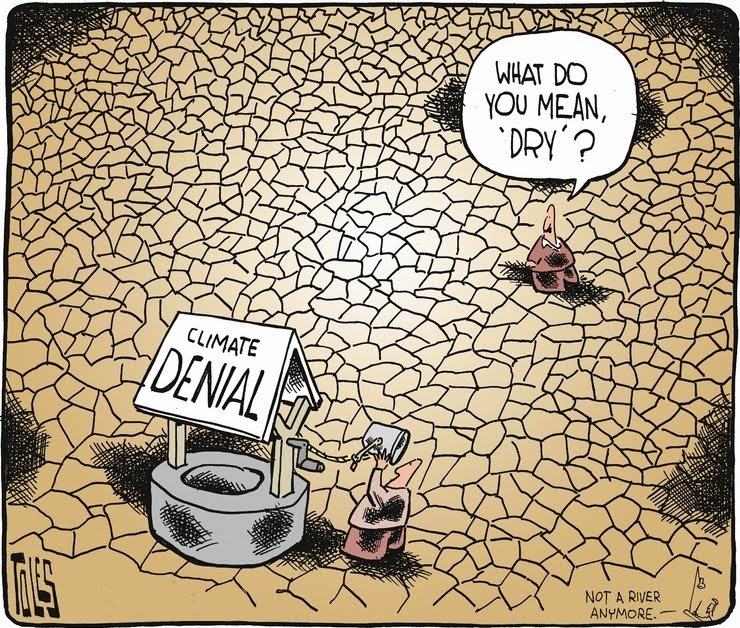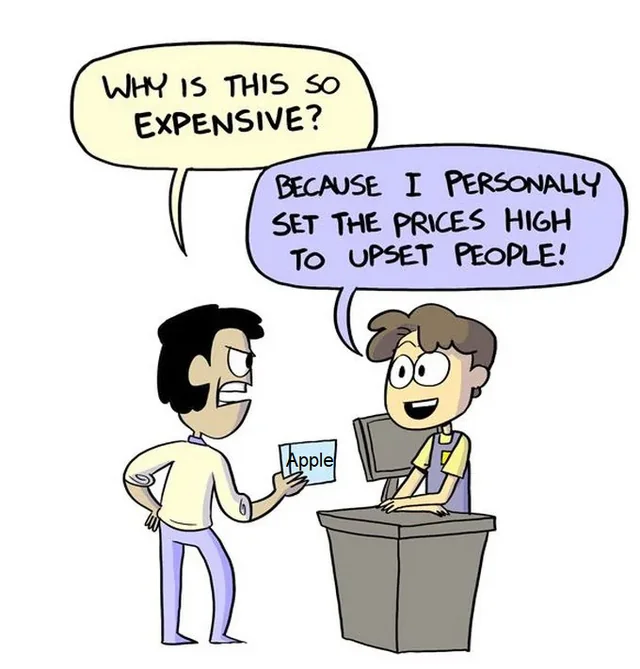Did you know that every second, a football field is carved out of the Amazon Rainforest? 1.5 acres, gone in a snap. Yet forty percent of US adults still think that global warming isn’t an issue. That’s like someone committing a murder outside a packed store, then walking into the store and striking up friendly conversation with almost half of the patrons. A spectator would be thinking, “How could those people be so blind?!”
Whether you like it or not, misinformation is already lurking within your life. Advertisements are just one instance; they use more subdued misinformation to spin their product in your favor. Climate change is no exception. In 2016, millions of Americans willingly voted into office a president who denied global warming. And this sort of thinking from powerful individuals spreads quickly: a recent study showed that around 1.3 million Twitter users posted and supported fake news about global warming. Think about it: 1.3 million lies, making their way into your feed on a daily basis. But that’s just the tip of the misinformation iceberg.
Case Study: Denying Science
The Exxon Mobil Corporation is the largest international gas and oil company in the world, and it used its position of influence to become one of the most infamous examples of global warming misinformation since the coinage of the term in 1975. A recent study by researchers at Harvard and the Potsdam Institute for Climate Impact Research has uncovered the true nature of the company.
The executives at ExxonMobil were already aware of global warming as far back as 1980 – they had hired scientists to run tests on contemporary pollution rates and develop projections of how much pollution might be present in the future. They were scarily accurate – our current situation in 2024 is right within their estimates. But the company then started spending millions of dollars on programs to refute the findings. For instance, they created the Global Climate Coalition in 1989. Throughout its lifetime, the group questioned the science behind global warming by bringing up flawed logic and unsupported facts in their claims. The impact of ExxonMobil’s actions persists – for many years, voices who wanted to convey the urgency of the situation found themselves smothered by doubt, because of those millions spent into burying credible information as far as it could go.
Speaking Up, the Wrong Way
In the wake of ExxonMobil and other large corporations’ actions, the question becomes: Why has this been allowed to happen for so long? Where are our voices? Activism is a thing, but it doesn’t seem to be working very well. We can choose to be heard, yes, but what we broadcast, and how we do it, is the crux of the problem.
Just Stop Oil is an organization built around climate activism, but it has thrust itself into the spotlight in 2022 with its convoluted methods of protest. Picture this: it’s a late night, you’re driving your friends home from some restaurant, eager to catch up on much-needed sleep, and suddenly you find yourself in heavy traffic. Up ahead, you see, to your horror, neon orange signs blocking the way forward. According to their website, Just Stop Oil’s strategy involves “bold, unforgivable action that confronts the fossil fuel elites.” I mean, they couldn’t have been more conceited. Blocking commuters only results in four times more emissions due to idling vehicles. Practically, it prevents emergency vehicles from passing, potentially killing people. And realistically, each one of these road sit-ins ends up in a couple of equally “bold, unforgivable” commuters (ha, ha) forcibly removing the blockage from their path. Because when you’re stuck in traffic, you’re not really open to someone shoving their ideas down your throat. In the end, nothing ends up happening to the “fossil fuel elites” at the root of the problem. And as you drive away, you only feel an overwhelming frustration towards the idiots and whatever cause they were supporting. Blindly shouting, therefore, is not effective.
So Now What?
Good activism utilizes relevant knowledge and unflawed methods for protest. Take Greta Thunberg, a successful Dutch activist involved in the passing of numerous pieces of legislation across Europe. She made sure limits were in place for the near future, pressuring companies like Shell to reduce their emissions and reduce them fast. Just last year, an affiliated environmental group – Greenpeace – launched a protest in which they successfully occupied a moving oil platform owned by Shell; that’s good activism! Why? Well, it specifically harmed the company, pushing Shell to file a lawsuit against the organization. The lawsuit was weak, though, because Greenpeace had established their activism in known facts. Which meant people around the world were literally laughing at Shell, tarnishing its reputation irreparably.
In all seriousness, climate change will continue to happen if we do not acknowledge misinformation and its role in public thought. We must work against efforts to sow discord and doubt amongst the large corporations in charge. And we are not without hope – Greta Thunberg and Greenpeace have shown the power of good activism. So, we must refute the lies fed to us by ExxonMobil and other gas companies. Maybe read multiple sources of every new happening in the climate world, or fact-check statistics you may find with known research from reputable sources. Because we must hold these groups accountable for denying science, and through it, subduing our voices.
Works Cited
“Climate Deniers Have a Fun New Tactic: Claiming Their Lies and Disinformation Are the Actual ‘Debunking.’” Red, Green, and Blue, 19 Oct. 2022,
redgreenandblue.org/2022/10/19/climate-deniers-fun-new-tactic-claiming-lies disinformation-actual-debunking/. Accessed 29 May 2024.
“Climate Misinformation.” Environmental Defense Fund, www.edf.org/issue/climate misinformation.
Evans, Joe. “Succession Writer Jesse Armstrong Hands Greenpeace £25k to Fight Shell Lawsuit.” Greenpeace UK, 23 Jan. 2024,
www.greenpeace.org.uk/news/succession-writer-jesse-armstrong-hands greenpeace-25k-to-fight-shell
lawsuit/#:~:text=Shell%20launched%20the%20lawsuit%20against. Funk, Giancarlo Pasquini, Alison Spencer, Alec Tyson and Cary. “14% of Americans Say There Is No Solid Evidence That Climate Change Is Happening.” Pew Research Center, 7 Aug. 2023, www.pewresearch.org/science/2023/08/09/why-some americans-do-not-see-urgency-on-climate-change/ps_2023-08-09_climate change_00-01-png/.
Hall, Shannon. “Exxon Knew about Climate Change Almost 40 Years Ago.” Scientific American, 26 Oct. 2015, www.scientificamerican.com/article/exxon-knew about-climate-change-almost-40-years-ago/.
Just Stop Oil. “Just Stop Oil – No More Oil and Gas.” Just Stop Oil, 2022, juststopoil.org/.
Marsh, René. “Big Oil Has Engaged in a Long-Running Climate Disinformation Campaign While Raking in Record Profits, Lawmakers Find | CNN Politics.”
CNN, 9 Dec. 2022, www.cnn.com/2022/12/09/politics/big-oil-disinformation record-profits-climate/index.html.
Nations, United. “Rampant Disinformation Is Delaying Climate Action.” United Nations, www.un.org/en/climatechange/rampant-disinformation-delaying climate-action.
Noor, Dharna. “New Files Shed Light on ExxonMobil’s Efforts to Undermine Climate Science.” The Guardian, 14 Sept. 2023, www.theguardian.com/us news/2023/sep/14/exxonmobil-documents-wall-street-journal-climate-science.
Powell, Alvin. “Oil Companies Discourage Climate Action, Study Says.” Harvard Gazette, 28 Sept. 2021, news.harvard.edu/gazette/story/2021/09/oil-companies discourage-climate-action-study-says/.
Ramirez, Rachel. “What Is ‘New Denial?’ an Alarming Wave of Climate Misinformation Is Spreading on YouTube, Watchdog Says.” CNN, 16 Jan. 2024,
www.cnn.com/2024/01/16/climate/climate-denial-misinformation youtube/index.html.
“Tackling Climate Mis/Disinformation: ‘an Urgent Frontier for Action’ | UN News.” News.un.org, 30 Oct. 2023, news.un.org/en/story/2023/10/1142972. Trachtenberg, Ari. “Tweets, Ads, and Lies: Researchers Are Fighting against Climate Misinformation.” Boston University, 24 May 2023,
www.bu.edu/articles/2023/tweets-ads-and-lies-researchers-are-fighting against-climate-misinformation/.
Turrentine, Jeff. “Climate Misinformation on Social Media Is Undermining Climate Action.” NRDC, 19 Apr. 2022, www.nrdc.org/stories/climate-misinformation social-media-undermining-climate-action.
“What Are Climate Misinformation and Disinformation and What Is Their Impact?” Grantham Research Institute on Climate Change and the Environment, www.lse.ac.uk/granthaminstitute/explainers/what-are-climate-misinformation and-disinformation/.






